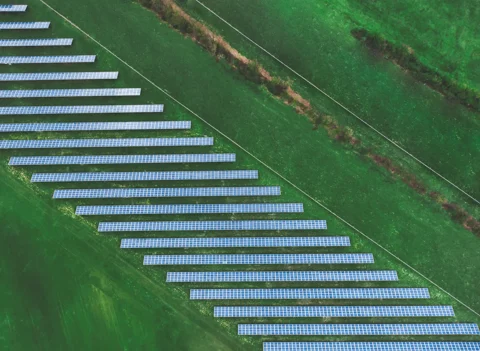Current issues related to economics, (responsible) investment, pensions and income: every week an APG expert gives a clear answer to the question of the week. This time: Chief economist Thijs Knaap on whether the economic outlook should be adjusted now that it seems that Covid will be with us for the foreseeable future.
Just under two years after the Covid outbreak, the Netherlands is again in lockdown due to increasing infection rates. At the same time, reports are coming in from southern Africa of a new Covid variant. At the end of 2020, we still thought that vaccines would get the virus under control, but now that hope seems to have faded. How will the new developments around Covid affect government policy, consumer confidence and financial markets? "If the government decides to stop the support, it really becomes a less positive story and an economic blow with bankruptcies and rising unemployment is inevitable," said Knaap.
Impact
When Covid first took hold, the Netherlands benefited greatly from the support measures of the Dutch government. Central banks also took action, so the impact on companies and financial markets was lower than expected. In fact, the number of bankruptcies is historically low to this day. Investors did not lose their money because companies were able to survive thanks to the support. Knaap: "Government support measures make sense in a temporary crisis, as Covid was considered to be, until recently. But understandably, there will come a point where the government may think, 'enough is enough'. After all, you can't keep companies afloat until the end of the century if their existence is no longer feasible in the new situation." So, for the economic outlook, a lot depends on what the Dutch government and other countries decide in the coming period.
The longer the lockdown remains in place, the worse it is for economic dynamism. "At the end of the day, you need people to engage in business. But who is going to open a restaurant in this day and age? The economy is getting a hit regardless. That also argues in favor of not phasing out the support measures, so that at least the existing companies don't go bankrupt," says Knaap. The advantage for the Netherlands is that it still gets money when it issues bonds. "We can continue to do that for years to come without being affected," he says. For other countries, and certainly emerging economies, the situation is more dire.
Consumers
Consumer confidence also plays a role in the economic outlook. "Economic growth occurs when companies make a profit, and they do that when they sell enough of their products to consumers. This has been difficult in the recent period due to problems with product supply. However, there was a lot of demand for products and services recently because consumers hoarded money during Covid by not being able to go to the pub or go on vacation," Knaap said. "The new lockdown still constitutes another setback for many people, with the hairdresser and theaters having to close earlier. That leads to less consumer confidence, making consumers more cautious in their spending. And that's never good for the economy."
Shock
The news of the omicron variant had already led to falling stock prices. What does that say about the prospects for the stock market? "Investors always have the previous shock still in their minds," states Knaap. That was in March 2020. But after first going down sharply, stock markets rose to record highs. It is possible that investors expect that the new outbreak will not lead to an economic crisis. Still, Knaap takes into account that it will turn out differently than last time. "The falling prices could now persist for a longer time, because we no longer see Covid as something temporary." Should we therefore adjust economic expectations? "The storyline is changing now. The previous storyline started with the pandemic after which the vaccinations followed and we expected economic recovery with rapid growth within two years." With these latest developments, that chance of rapid recovery now suddenly seems a lot further away."
The next few weeks will show whether this is a last hiccup of the virus and this will be a short lockdown. If so, there is a good chance that the positive economic expectations of a few weeks ago can be sustained. This is also due to the fact that the government can still intervene for a long time and stock prices have not fallen extraordinarily hard after the emergence of the omicron variant. Still, the new lockdown is creating uncertainty, including among consumers. The longer Covid remains among us, the more likely it is that at some point the government will stop its generous support policy, causing bankruptcies and unemployment to rise and stock markets to take a hit as well. The story is not over yet.



